This year’s best in TV took us from the furthest reaches of space to murder mysteries in small Philly towns.
While movies had a bit of a weird pause in 2020, TV continued largely unabated in 2021 (production snafus aside), which makes the TV critics’ job even more difficult. In an age where a new streaming service premieres every week, with entire catalogs of shows to keep track of, how are we supposed to keep them all straight?
That meant, of course, that shows had to work even harder to stand out. Sometimes they had to be revolutionary adaptations of timely novels from some of our greatest auteurs; sometimes they had to highlight marginalized voices we don’t normally get to see on our television screens. Frequently, all a show had to do was do what it was already doing well, and iterate on that in a new season. Either way, this year’s best were full of expected greats and out-of-left-field surprises no one saw coming (hello, Squid Game).
Either way, The Spool has done its due diligence and brought you an unranked, alphabetical snapshot of the best TV the year had to offer. [Clint Worthington, editor-in-chief]
Honorable Mentions: Exterminate All the Brutes, Sasquatch, Physical, Lupin, Feel Good, Search Party, The Expanse, Tell Me Your Secrets, Dopesick, Arcane, The Other Two, Philly DA, Master of None, Maid, Yellowjackets
The Beatles: Get Back (Disney+)
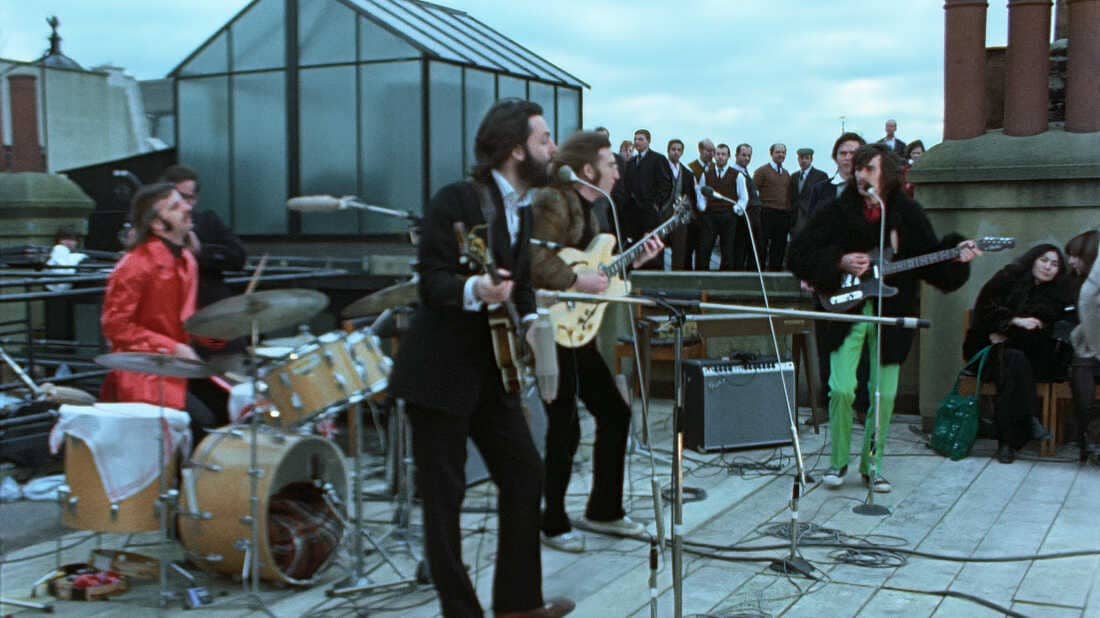
Too many documentaries, particularly about musicians, focus on talking heads and recycled performance footage. Peter Jackson’s nearly eight-hour-long documentary (broken down into a more manageable three parts) about the recording of the Beatles’ Let it Be simply lets the audience watch the Beatles at work, still joking with each other despite being on the verge of breaking up. The idea of watching them noodle on their instruments for literally hours at a time may not seem interesting until you realize that what you’re seeing is the creative process at work. Regardless of what legend may say, songs don’t simply pour out of people, it can take incessant playing of the same opening bar and over and over until something sticks and feels right. In one case, it was Paul McCartney and John Lennon trying to decide which town in Arizona Jojo was from in “Get Back.” It’s strange to positively describe a movie as being well-suited for background noise, but that’s what Get Back is–you don’t need to pay close attention, just put it on and let the sound of brilliance happening soothe you in a difficult time. [Gena Radcliffe]
Evil (Paramount+)
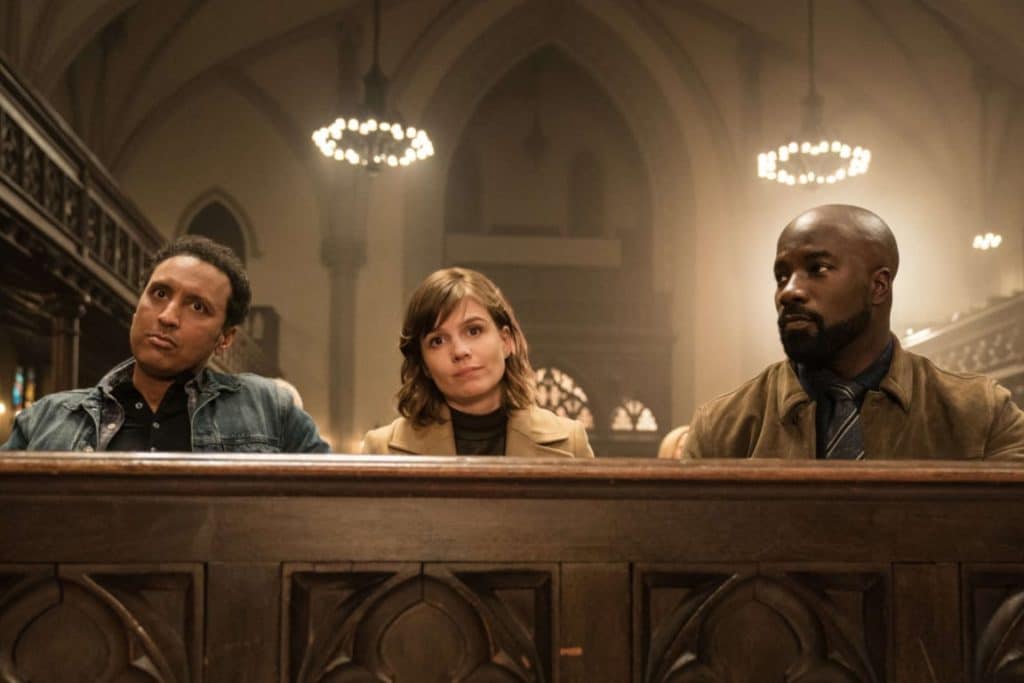
Frightening, funny, and ffffffffff…Mike Colter in those sweaters!
Evil is not a “so bad it’s good” show; it’s just plain good. However, it does share that reckless, “what the hell, let’s give it a shot” attitude that makes the best “good-bad” entertainment so damn compelling. Some critics have worried about the show maintaining this pace. Perhaps they’re right. For now, though, who cares? Let’s take the ride.
Still, the pacing might be empty thrills if not for the actors’ work. Chemistry abounds amongst the key players. Forbidden lust sparks with every moment skeptical psychologist turned…well… you’ll see Kristen Bouchard (Katja Herbers) and religious believer David Acosta (Colter). Yet, despite that heat, both actors also instill a sense of honest caring for each other. Doubting tech guy Ben Shakir gives Aasif Mandvi his best role to date. The fact that he can hang on-screen with Herbers and Colter is a testament to both his skill and charisma. The absolute delight of the affair, though, has to be chief antagonist Leland Townsend (Michael Emerson). He makes evil—and Evil—the most fun a fella can have with his clothes (usually) on. [Tim Stevens]
Read our review here.
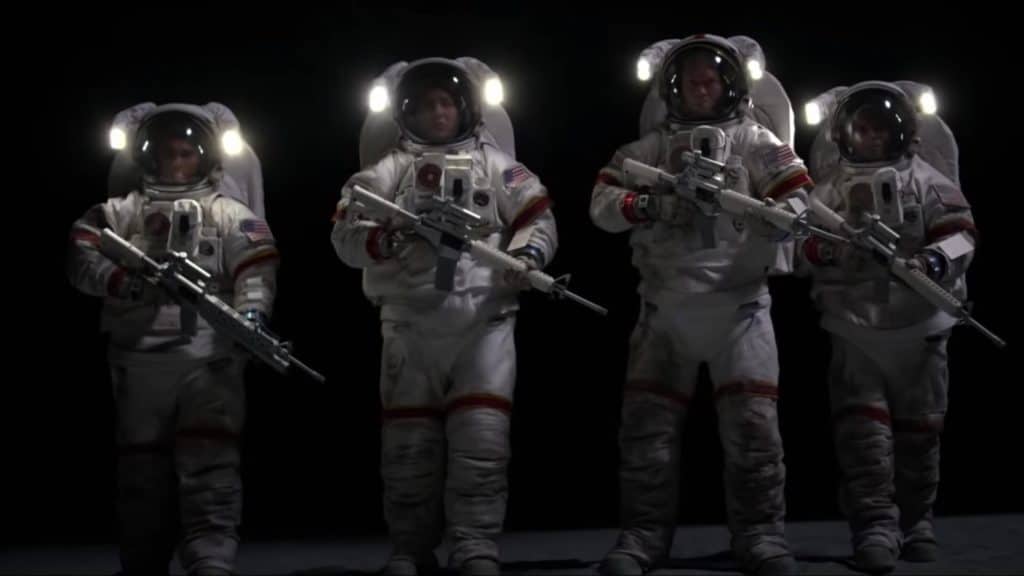
For All Mankind (Apple TV+)
Ronald D. Moore’s alt-history sci-fi series, which presupposes the Russians got to the moon first and reshapes the ‘60s from there, took its time to build its various building blocks over its first season. But it’s in season two that all of those chickens finally came home to roost, a steady OMS burn of opportunities and calamities for a world reeling with a decidedly different take on the 1970s. The ensemble cast, particularly Michael Dorman and Sarah Jones, put in superlative work, and the show makes incredible use of all that Apple money. Plus, its gradual build to a showstopper two-episode climax makes it feel like the kind of TV we used to get; where individual episodes meant something and a season was as impeccably structured as a great album. Can’t wait to see what this time jump means for season 3. [Clint Worthington]
Foundation (Apple TV+)
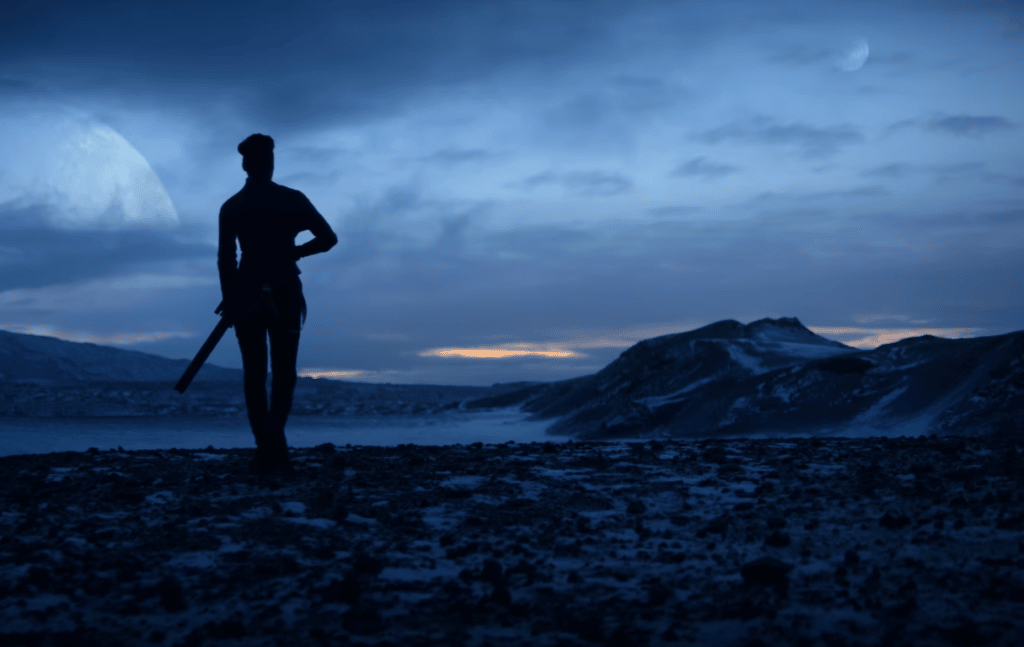
Speaking of heady Apple TV+ sci-fi shows, Foundation takes a similar amount of time to build up its myriad mysteries. A decidedly sentimental adaptation of the Isaac Asimov novel series, David S. Goyer’s take on the story expands on the dry, philosophical ideas of the books (namely, that a version of sociology called psychohistory would herald the end of a seemingly-invincible Galactic Empire) and injects a much-needed human element to the proceedings—where a single person’s momentary decision can unravel even the most precise societal planning. Lee Pace is a piercing, uncanny presence as the generationally-cloned Emperor blinking at the prospect of losing power, while Jared Harris exudes mercurial wisdom as the psychohistorian prepping humanity for a future after the end of everything. The metaphor for climate change (and our institutions’ indifference in addressing it) is clear and concise, bolstered by industry-best special effects and a sweeping, mathematical score by Bear McCreary. Can’t wait to see what the decades-hopping series does next year. [Clint Worthington]
Read our review here.
Girls5eva (Peacock)
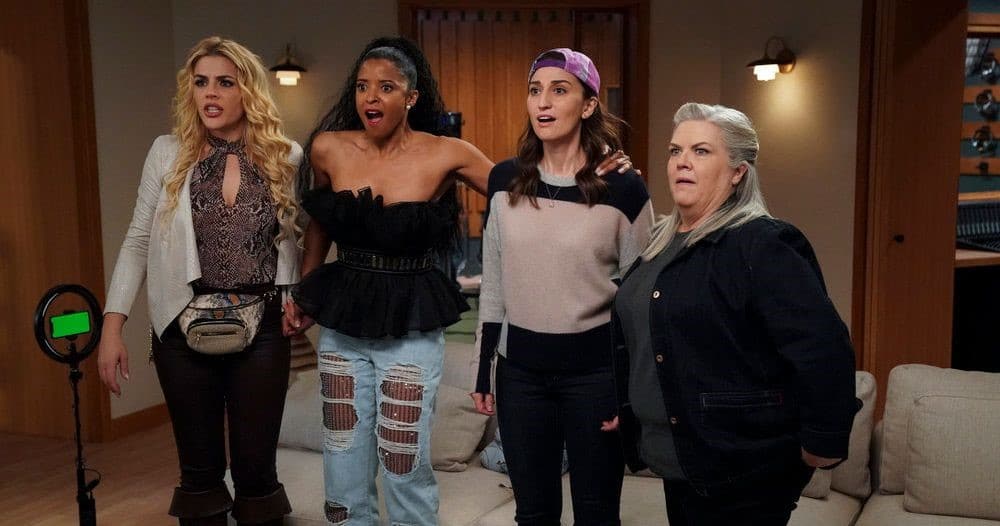
If you know previous Tina Fey-Robert Carlock projects like 30 Rock and Unbreakable Kimmy Schmidt, you have an idea of what to expect from Girls5Eva’s tone and speed. Wall-to-wall jokes delivered nonstop by characters both deeply committed to each other and utterly self-obsessed. They’re the sort of people you’d hate to know in real life but can’t help but love on our television screens. Girls5Eva also reflects the steadily growing heart of Fey-Carlock collaborations. There’s a depth and sweetness to the central quartet—Dawn (Sara Bareilles), Summer (Busy Philipps), Gloria (Paula Pell), and Wickie (Renée Elise Goldsberry)—that take dynamics like the Liz Lemon-Jack Donaghy to the next level. While the scripting puts it out there, the actors are the ones who sell it. Bareilles and Goldsberry—both having done most of their acting on stage—stand out as especially good at finding the heart amongst the jokes.
Oh, and the songs? Accurate, absurdist digs at late-’90s girlpop that still dig into your brain. [Tim Stevens]
Read our review here.
The Great (Hulu)
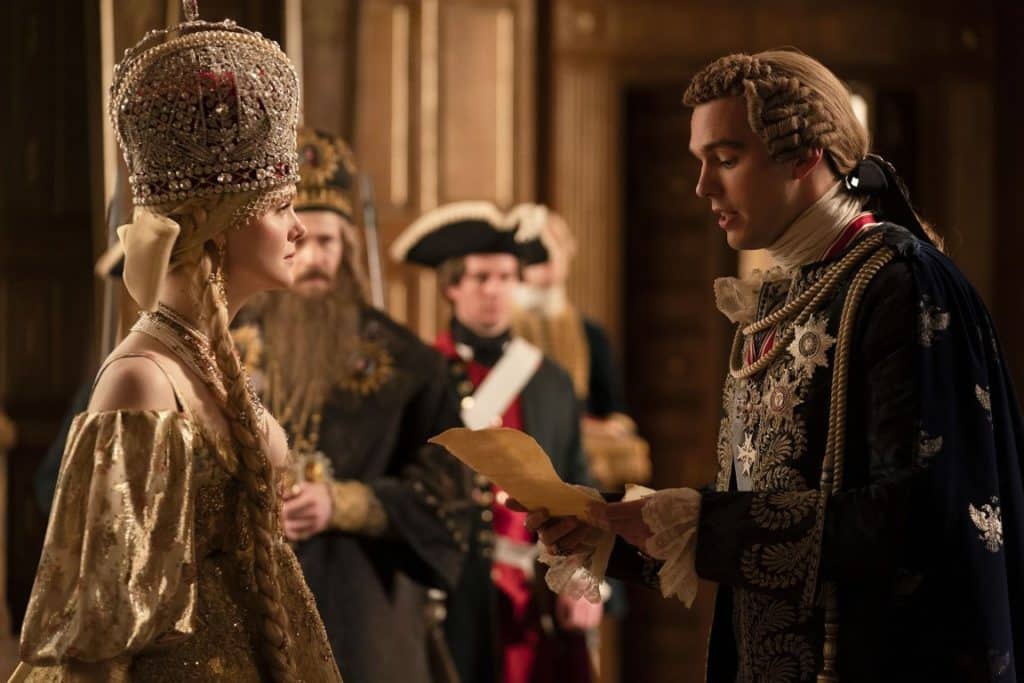
Nicholas Hoult is just so damn funny. Arrogant, selfish, and libidinous, Peter should be absolutely insufferable. In Hoult’s performance, however, the Emperor is the life of the party, an undeniable force of mirth. Even as his wife, Catherine (excellent foil Elle Fanning) tries to kill him time and time, he remains bizarrely sunny and devoted to her. It’s as though he figured on the joke of life and is perfectly happy to keep on laughing.
Honestly, The Great shouldn’t work at all either. It’s a historical dramedy that plays it fast and loose, placing humor and characterization well above any attempts at accuracy. It feels like the kind of idea that would work wonders as a short or a segment on the late great Drunk History. And yet here we are, two seasons in, and it’s only gotten better. [Tim Stevens]
Hacks (HBO Max)
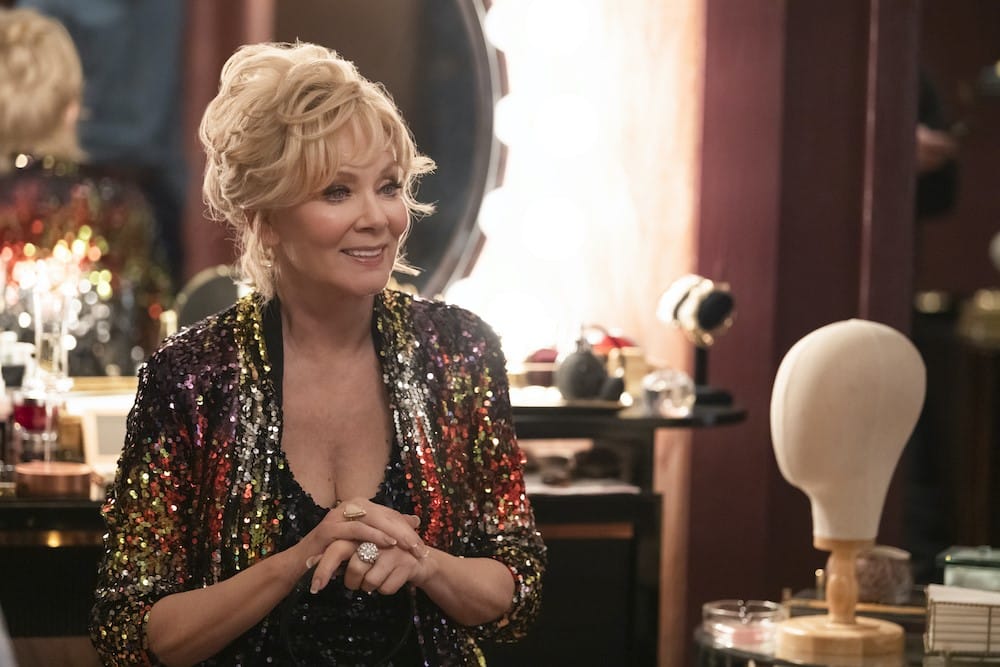
Created by Broad City alums Lucia Aniello, Paul W. Downs, and Jen Stastky, Hacks kicks off as a comedy about the life of Las Vegas standup diva Deborah Vance (Jean Smart). But once a snarky millennial comic named Ava (Hannah Einbender) is hired as Deborah’s writer, Hacks evolves into a smart story about the generational gap before morphing into a biting critique of the comedy world. While the writing is filled with lots of hilarious one-liners, there are also plenty of intimate moments and real emotional depth, especially the show peels back more layers of Deborah’s personal life. It’s HBO’s best comedy in the last few years. [Reyzando Nawara]
Read our review here.
I Think You Should Leave with Tim Robinson (Netflix)

Few creators understand the terrifying burden of modern social graces quite like Tim Robinson, and the second season of his superlative Netflix sketch series finds ever more opportunities to prod at the niceties that usually keep polite society rolling along. A prosthetics-heavy prank show goes awry when the host has an existential crisis in the middle of filming (“I don’t even want to be around anymore.”); a man questions the rhetorical limits of an adults-only haunted house tour; students struggle to figure out the backstory of a driver’s ed video. Pair that with balls-out absurdity like “Coffin Flop” and Patti Harrison’s “I can’t stop having wine” bit, and it’s hard to think of a show that gave us more belly laughs this year. Here’s hoping for a season 3; after all, triples is best. [Clint Worthington]
It’s a Sin (HBO)

If there’s one show everyone needs to watch this year, it has to be It’s a Sin. Created by the great Russell T. Davies, the five-part miniseries chronicles the life of four friends during a decade in which the rise of AIDS changes everything. Olly Alexander leads the uniformly fantastic ensemble with a performance so luminous you can’t look away. Though the premise is devastating, Davies always makes sure to show moments of joy anytime the characters share a scene together. Not only is it a beautiful and often heartbreaking show about queer culture, but It’s A Sin is also a deeply affecting tribute to those who were lost in the AIDS epidemic. [Reyzando Nawara]
Read our review here.
Loki (Disney+)
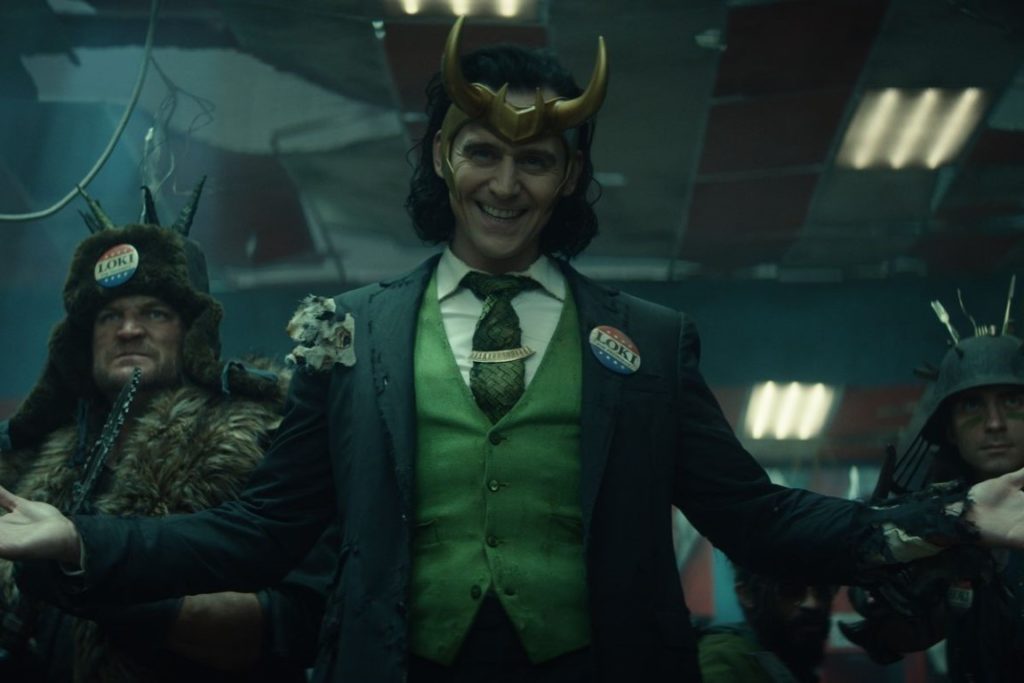
For many, any show that gives us more of Tom Hiddleston as Loki is an undeniable good. Thankfully, this Disney+/MCU offered was not content to rest alone on that easy fan service. Even if Hiddleston is superb, giving his most vulnerable and layered performance as the God of Mischief yet.
Hiddleston also has a murderer’s row of supporting players, including a perfectly laconic Owen Wilson as TVA Agent Moebius, Wunmi Mosaku as the pitiless enforcer Hunter B-15 who quietly has the series’ most significant arc, and Gugu Mbatha-Raw as the playing-all-sides Judge Renslayer. Then there’s the alternate universe Lokis: wonderfully self-righteous Sophia Di Martino as antagonist turned ally turned lover(?) Sylvie, Richard E. Grant is just perfect as “Classic Loki,” and of course, Wally the gator. It’s an embarrassment of riches.
Then Jonathan Majors shows up in a strange, unnerving performance as a puppet master who’s losing control of the strings. In a show full of flash and the fantastical, he gave Loki its best moment with a slow walk through a rotting mansion, eating an apple. [Tim Stevens]
Read our review here.
Listen to our podcast interview with composer Natalie Holt here.
LulaRich (Amazon)
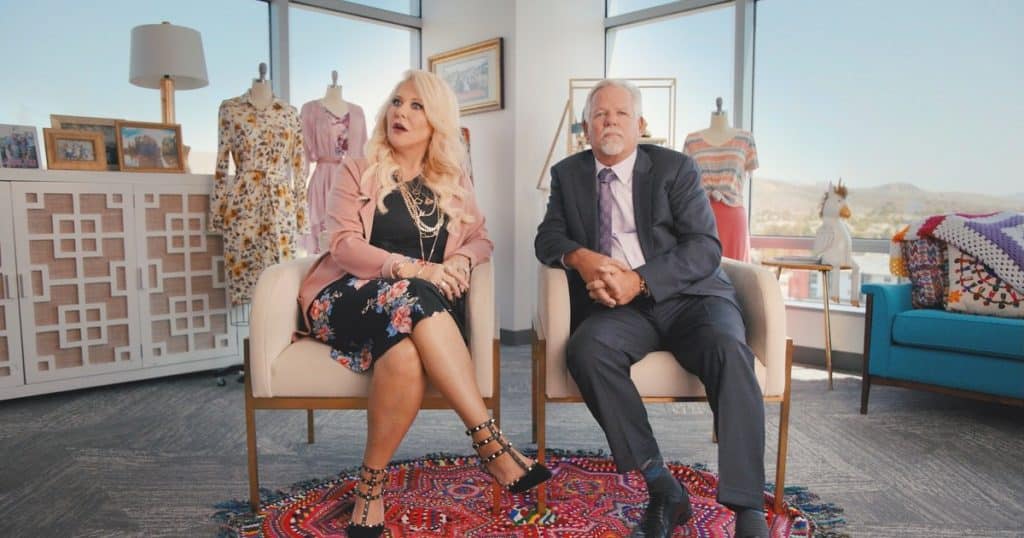
If the sight of a message from an old high school classmate strikes fear in your heart, then the Amazon documentary LulaRich will only validate you. A brain-bending look at the cult-like devotion to both buying and selling the “one of a kind” fabric leggings manufactured by LulaRoe, much of LulaRich seems too absurd to believe, particularly when you get to the part about one of its founders encouraging sales reps to take “girls’ weekends” to Mexico for weight loss surgery, as part of a dedication to looking like the perfect working mom/girlboss. How anyone falls for the bait and switch nonsense of an MLM remains a mystery for the ages, but it’s easy to see why people stay with them, at the cost of everything they have — a sense of belonging, and the very American notion that you’re nothing if you’re not constantly bringing in cash and working some sort of “hustle,” especially if your customer base is just like you: needy and desperate to fit in. [Gena Radcliffe]
Mare of Easttown (HBO)
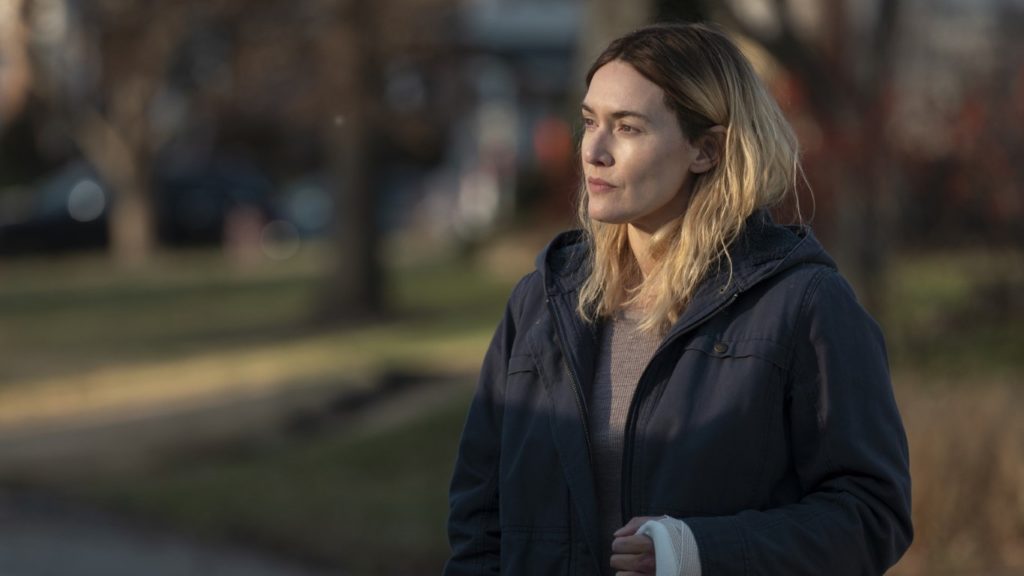
Kate Winslet never disappoints, and in Brad Ingelsby’s HBO miniseries Mare of Easttown, she once again proves why she’s one of the greatest actors working. Leading a terrific ensemble including Jean Smart, Evan Peters, and Julianne Nicholson, Winslet plays a small-town detective tasked to investigate a local murder while trying to deal with personal grief. While the show seems like the kind of police procedural we’ve seen countless times before, at its core, Mare of Easttown is a character study about motherhood and failure. Ingelsby has made a show so thrilling, it’s almost impossible to not binge all the episodes in one sitting. [Reyzando Nawara]
Read our review here.
Midnight Mass (Netflix)
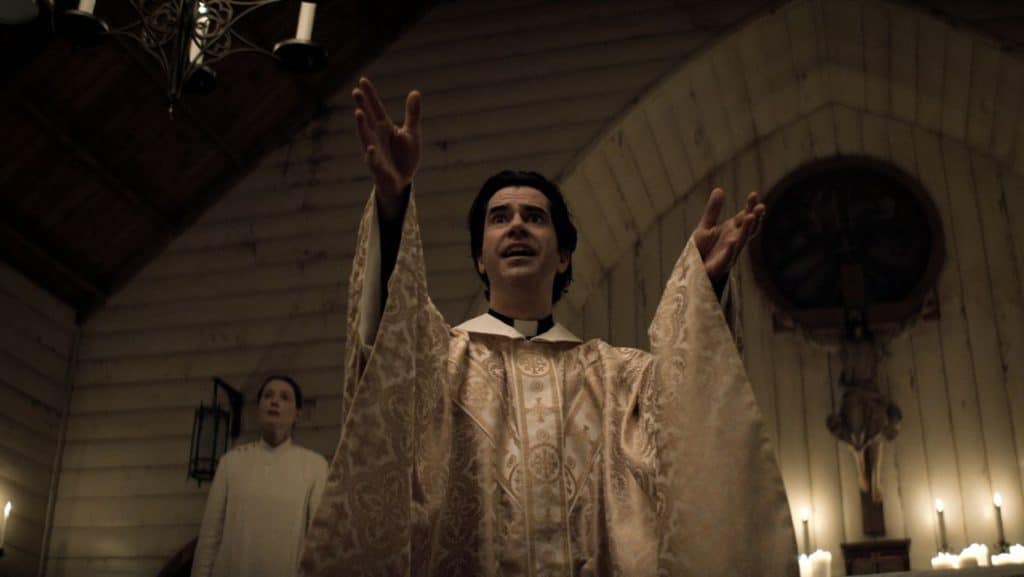
Not a day goes by since I’ve seen Midnight Mass that I don’t think about it, even just for a moment or two. Sometimes I think of glowing eyes in the dark, or people singing hymns as they walk towards their doom, or Erin Greene’s (Kate Siegel) horrified screams as someone burns alive in front of her. But mostly I think of Erin as she’s leaving this world, looking at the stars drifting in the sky and thinking of a conversation she had about what happens to us when we die. She’s at utter peace in this moment, despite the horror of what she’s encountered up to then. Anchored by gripping performances by Siegel and especially Hamish Linklater as a cursed priest convinced he’s doing the right thing in “saving” his subjects, Midnight Mass is Mike Flanagan’s best, most personal work yet, taking the audience’s hand and guiding them to a place in which death is not to be feared, but rather understood as part of the process, and one we will all encounter at some point, no matter how saved we think are. [Gena Radcliffe]
Read our review here.
Only Murders in the Building (Hulu)
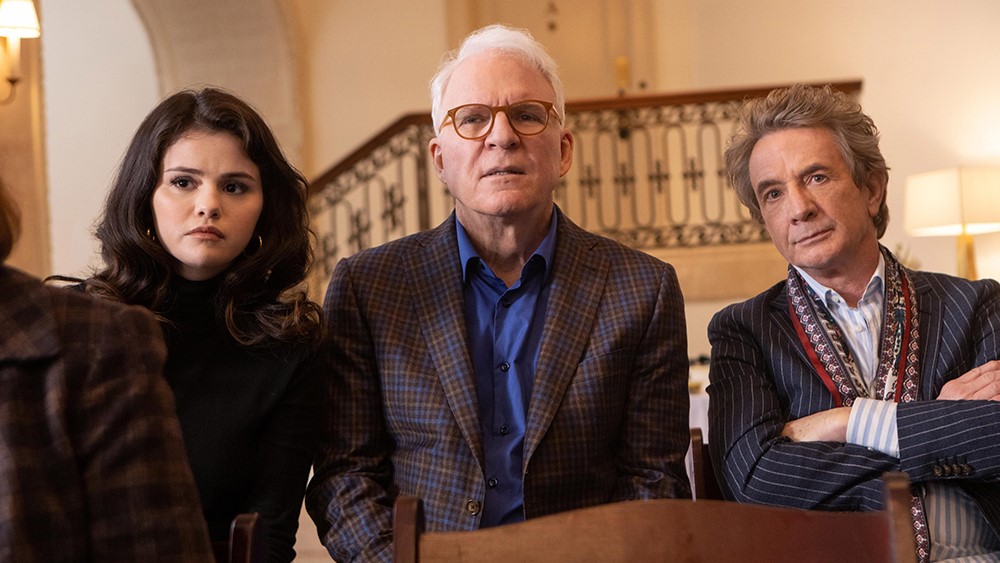
There seemed to be plenty of red flags for this show. Martin Short can be a lot in a pure comedy, and this seemed to be trying to be a bit more serious than that. Steve Martin hadn’t had an on-screen hit in some time. Would the two longtime friends make space for Selena Gomez? And they’re playing podcasters? The list goes on from there.
None of them mattered. The show was a warm delight with just the right amount of acid to keep it from going bland. The trio has terrific chemistry. Short leaned more on his dramatic chops while still finding the time, during a fantasy casting sequence, for example, to let out some of that anarchic comedic energy.
Most impressively? It tells a solid mystery that gives us a better cliffhanger than most other shows managed this year. [Tim Stevens]
Read our review here.
Pen15 (Hulu)
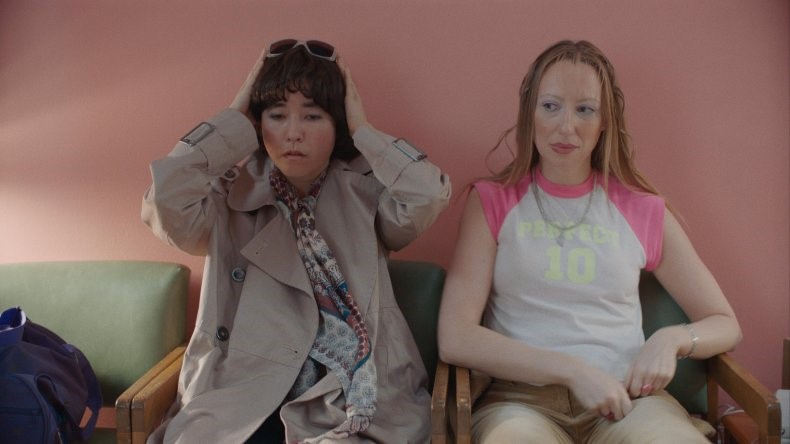
This one hurts a bit to write, knowing as we now do that the middle-school adventures of Maya (Maya Erskine) and Anna (Anna Konkle) end here. Still, to steal the cliché, viewers shouldn’t be sad it’s over but rather thrilled it happened.
The idea of the series, that two adult women are playing early adolescents against kid actors actually that age, is perhaps a bit less shocking this time out. However, the show’s ability to capture what is, perhaps, the worst few years of any kid’s life remains undiminished. The unintended slights, the raging hormones, the sense of growth that’s always teetering on the edge of pure chaos–it’s all there and feels truthful. That Erskine, Konkle, and the rest of the creative team manage to make it funny amongst all that honesty is something just this side of miraculous. Best Best Friends, we will miss you. [Tim Stevens]
Reservation Dogs (FX on Hulu)
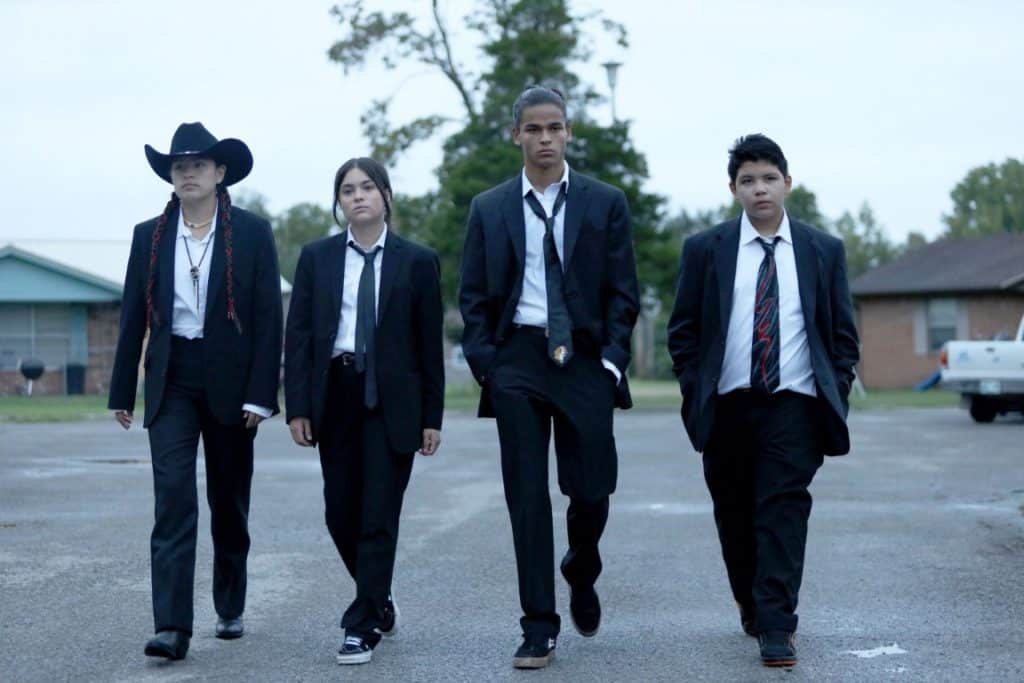
Critics with personal knowledge have praised the authenticity with which Reservation Dogs captures life on a reservation. Considering how underserved Native populations are by pop culture, that’s a very good thing. To have it happen in the context of an excellent show makes it even better.
The reservation has the aura of both a sanctuary and a prison to our teenage protagonists Elora Danan (Devery Jacobs), Bear (D’Pharaoh Woon-A-Tai), Willie Jack (Paulina Alexis), and Cheese (Lane Factor)—the Rez Dogs—a familiar experience for most if not all kids the Dogs’ age. That sense of teenage malaise—hungry for the next step but unclear on when or how to take it—permeates the show, giving it a delightfully bittersweet feel. The sense of being on the edge of considerable change and needing it and fearing in equal measure is such ripe ground for storytelling. Reservation Dogs makes the best of it. [Tim Stevens]
Schmigadoon! (Apple TV+)
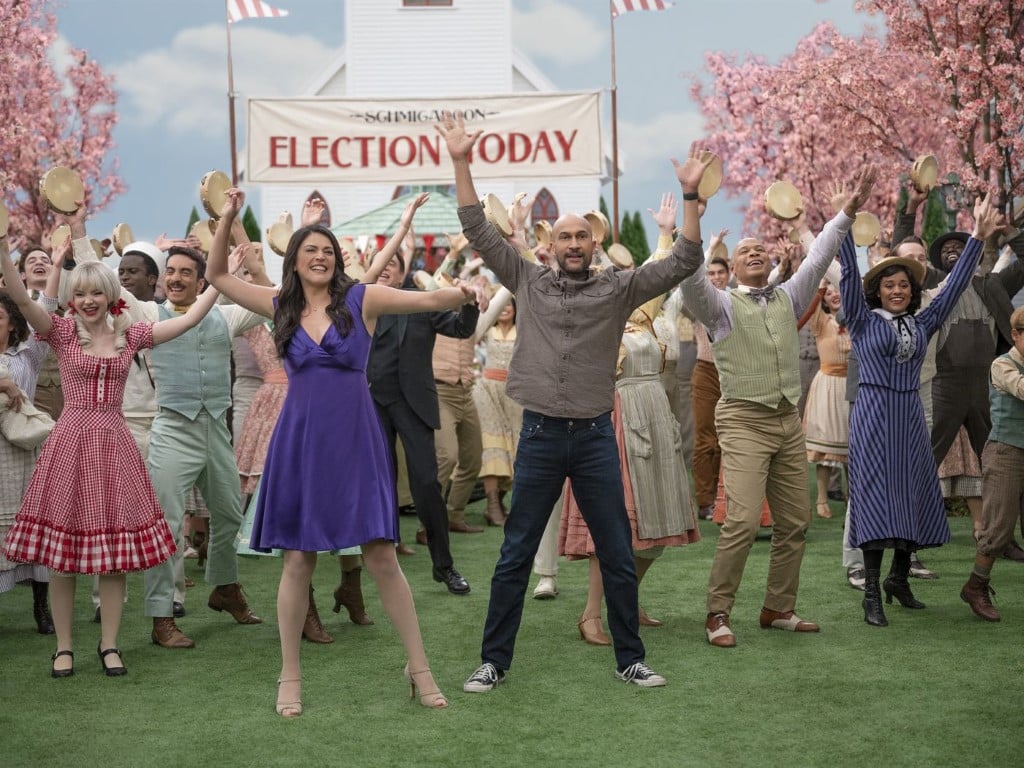
Musical parodies are nothing new. Musical parodies that observe the horny oddness of classical musicals feel somehow even older. So tell me why Schmigadoon! is such a kick?
Part of it no doubt lies with a cast chock-a-block full of Broadway ringers like Kristin Chenoweth and Alan Cumming, anchored by strong performances by Cecily Strong and Keegan-Michael Key as the lead couple in conflict. The beautifully artificial set dressing helps too. It evokes both community theatre musical sets and the unreality of a strange secret place you might never be able to escape. Somehow the falseness of it all makes Schmigadoon feel more real.
However, what definitively makes it all click together is the show’s central question. Josh (Key) and Melissa (Strong) may seemingly have no escape from a world of all singing and dancing, but their dilemma—stay together and try to make the best of imperfection or break up and roll the dice on something better—is recognizably human. That their struggle to make a choice somehow makes the mystical land they’re prisoners of a bit more honest, too, is the cherry on top, an ode to communication and accepting you and your partner’s flaws. [Tim Stevens]
Read our review here.
Squid Game (Netflix)
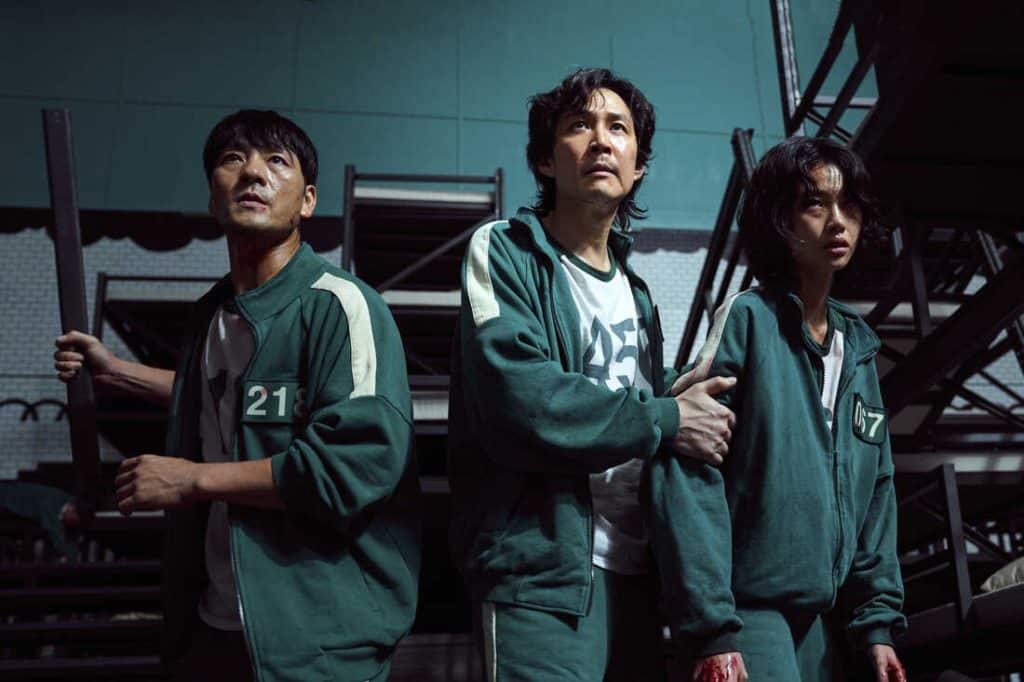
A bleak reminder of the capitalist dystopian we live in right now. A story of finding humanity in horror, only to discover that person is the architect of the entire nightmare. Bodies mowed down by bullets and twisted by long terrible falls. yet, Squid Game was the most “can’t look away” compelling show released this year. The juxtaposition of candy-colored jumpsuits, children’s games, gruesome bloodshed, and moments of quiet resolve proved irresistible. Twists in the plot surprised viewers but never felt untethered from the show’s reality. The overwhelming draw of risk, sparked by desperation, felt deeply recognizable. While there’s something to be said for comfort television, Game suggests that there’s also value in gazing into the darkness and seeing what fresh horrors could be coming for us. [Tim Stevens]
Succession (HBO)
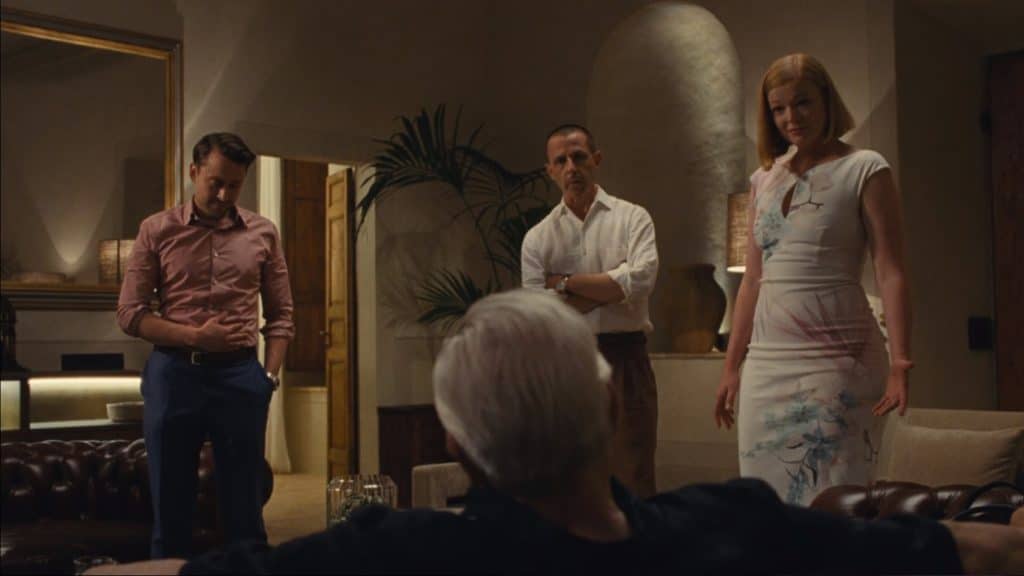
When the second season of Jesse Armstrong’s Shakespearean opus Succession ended a year and a half ago, it almost felt impossible that the show would ever reach the same level of brilliance in their next season. But somehow Armstrong and his writers pulled it off effortlessly. Raising the stakes and incorporating more real-world situations into the story, Succession season three doubles down on what makes the show so diabolical and addictive in the first place. The characters are still unscrupulous and self-centered, but the performances from the cast are so engaging that we can’t help but root for them. The writing remains funny and equally intense as ever. Simply put, Succession is the best family drama on TV right now. [Reyzando Nawara]
Read our recaps here.
Ted Lasso (Apple TV+)
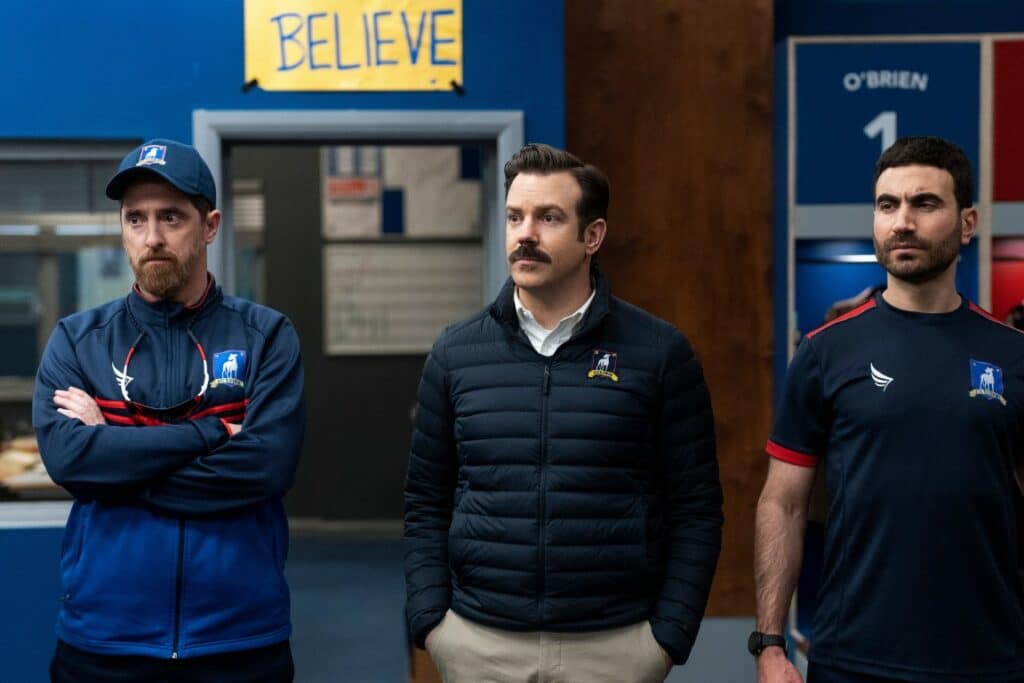
Last year’s COVID comfort hero had the nerve to show up in season 2 and be complicated. To be sad and angry and pessimistic. It felt like betrayal to some, disappointment to others. It was excellent. Saying that isn’t delighting in misery; it’s appreciating a story well-told. While not as brisk or streamlined as season 1, Ted Lasso took bigger cuts and showed it had more on its mind than just the (undeniably excellent) warm fuzzies.
An approach to life that goes untested isn’t nearly as interesting as one that gets put through the wringer and still emerges useful. So while it remains to be seen if Lasso’s next season will affirm his beliefs in optimism and give everyone a fair shake, this season rightly interrogated the flaws in that approach and the flaws in the man. The show didn’t reject the Lasso Way; it asked viewers to consider what one gains and loses by living by it. [Tim Stevens]
Read our recaps here.
The Underground Railroad (Amazon)
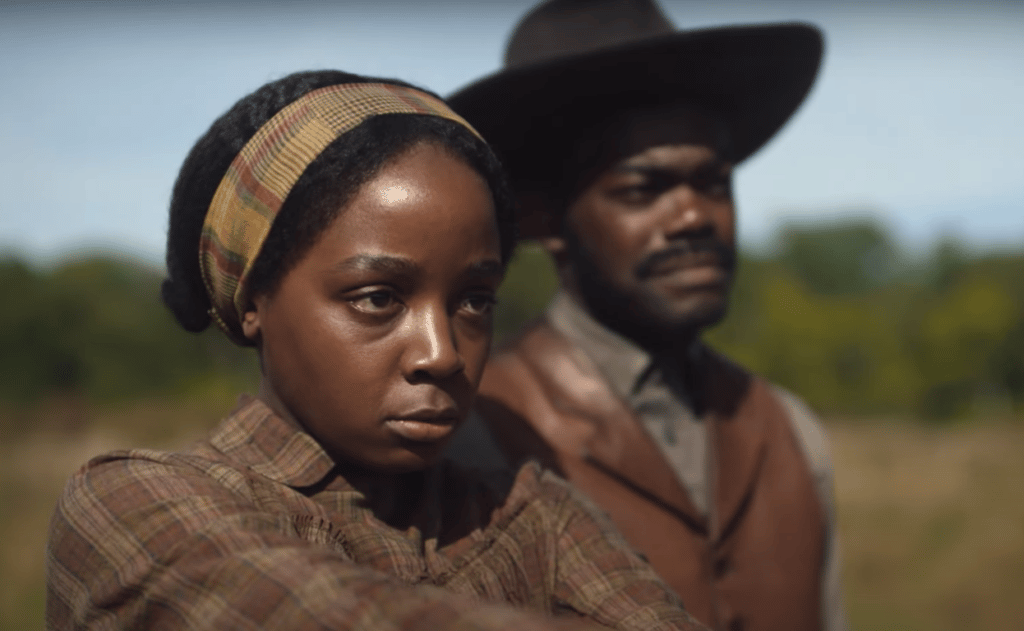
That Barry Jenkins’ magnum opus, a downright operatic adaptation of Colson Whitehead’s novel, isn’t at the top of everyone’s tongue in end-of-year television conversations speaks to how dismally Amazon dropped the ball in its distribution. Where shows like The Boys and The Expanse benefited from weekly drops to marinade on each installment, the ten-episode season was dumped ceremoniously on Prime with little fanfare. It’s a shame, too, as it’s some of Jenkins’ most insightful, incredible work yet — a searing indictment of historical racism and the ways it ripples through into the present, the myriad cycles of abuse and abuser, systems of cruelty being perpetuated through rhetoric and complicity. And through it all is Thuso Mbedu’s Cora, anchoring the whole thing on her delicate shoulders, work that had damn well better skyrocket her to the A-list. James Laxton’s detailed, dreamlike imagery, Nicholas Britell’s yearning gasp of a score: all of it deserves to be visited and revisited again and again. Like the rows of Black faces staring straight into the camera, The Underground Railroad dares you to look back at it, engage with it, acknowledge its humanity. [Clint Worthington]
WandaVision (Disney+)
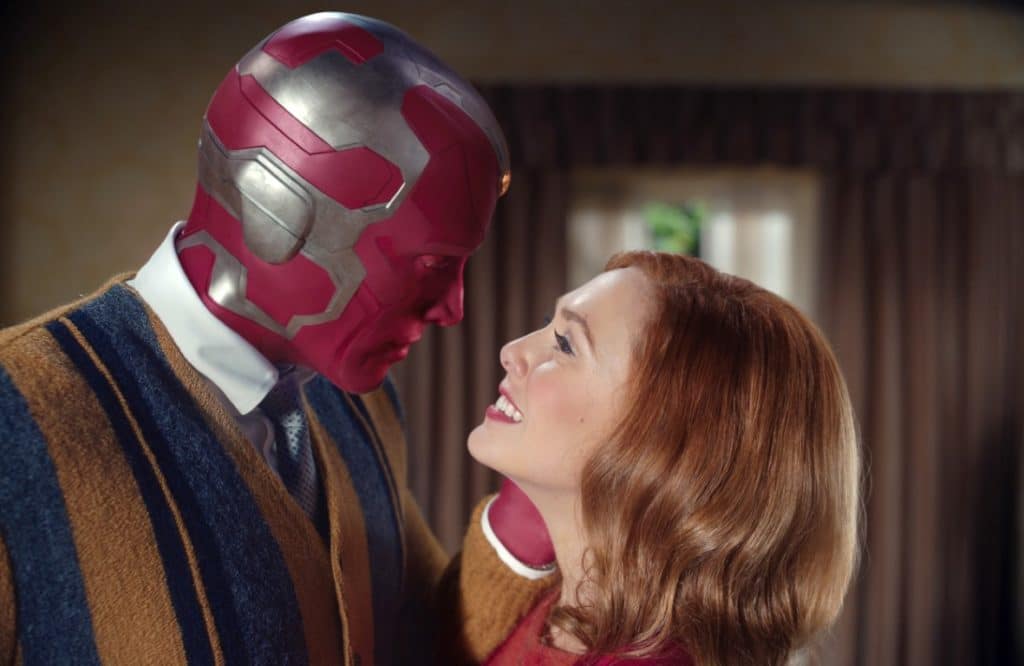
When WandaVision arrived, it was unclear how, if at all, the MCU could transition to television. With its inaugural episode’s commitment to 50’s sitcom aesthetics and the strange sense of disorder slipping in through the corners of the show, it offered one answer: be wonderfully weird.
Just as we accepted that idea, the series lurched again. The sitcoms were fun, yes, but they were just a distraction from the thing that Wanda could only ignore for so long. Her deep, all-consuming grief, a grief that climaxed with Vision, yes, but began in her childhood with her parents’ deaths and rose again with her brother Quicksilver’s heroic sacrifice.
While the more traditional superhero punch-up ending left some a bit disappointed, the true climax of the show comes when Vision and Wanda tuck their children in and stare out into the encroaching nothingness. A simple, powerful take on how we face the inevitability of pain and loss and how we shield those we love from having to do the same as much as we can. Plus, no other show gave us a chart-topping original song. [Tim Stevens]
Read our review here.
We Are Lady Parts (Peacock)
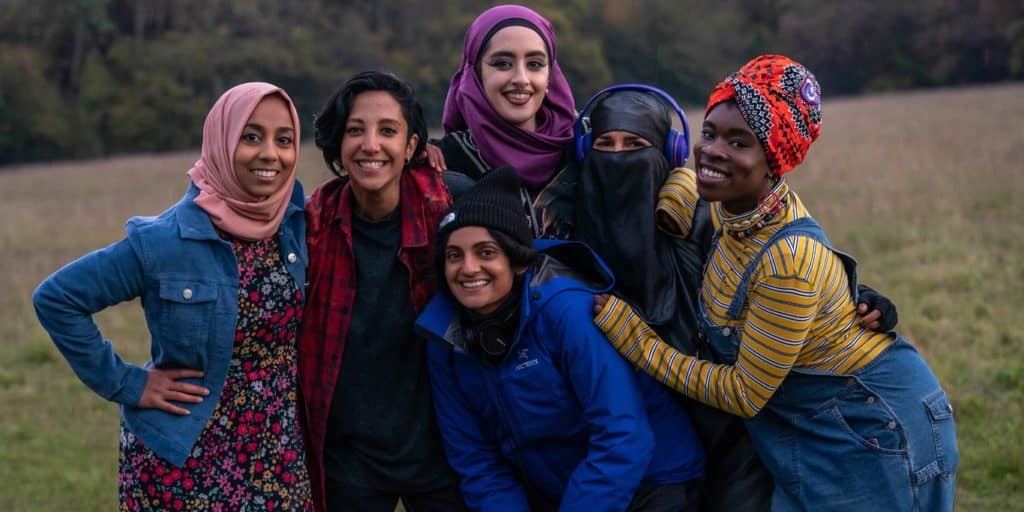
While Girls5eva was a huge feather in Peacock’s tail, we can’t sit idly by and ignore Nida Manzoor’s vibrant, pulsating, giddily optimistic British import about a group of Muslim teenagers in London starting a punk band together. Each of the five kids have their own reasons for joining the band — liking a boy, pissing off their parents — but the energy that rises from their collaboration is nothing short of fist-pumping. Anjana Vasan and her castmates shout their charisma from the rooftops, and defy you not to perk your ears up and bang your head right along with them. Easily one of the great joys of TV-watching this year, and I can’t wait to see what their sophomore effort looks like. [Clint Worthington]
What We Do in the Shadows (FX)
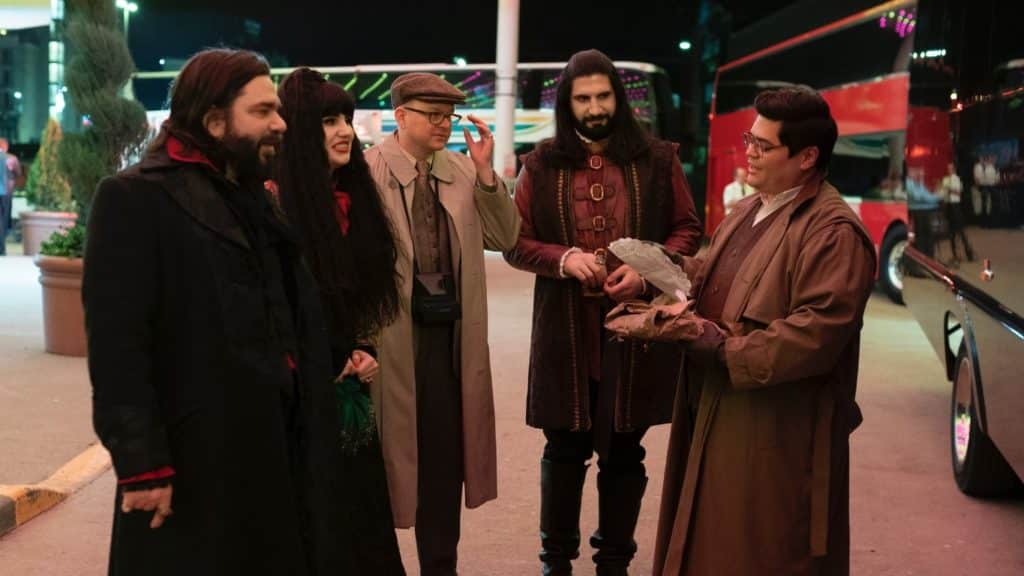
Season 3 of What We Do in the Shadows is really about the friends we made along the way. In this case, the four roommates finally (albeit grudgingly) learn to accept not just each other, but the eternally put upon Guillermo (Harvey Guillén), who gets promoted from familiar to “vampire bodyguard” (which still mostly involves the duties of a familiar. Focusing less on guest star episodes (though there are still a few of those) and more on the primary characters themselves, this season is surprisingly touching at times, even with its usual gruesome touches, notably Colin Robinson (Mark Proksch) dying and Laszlo (Matt Berry) accidentally putting his hand through his rapidly decomposing face. But don’t worry, Colin Robinson regenerates in the season finale, as a grotesque baby version of himself, setting up an undoubtedly riotous fourth season in which the gang must work together to “raise” him to boring, energy-sucking adulthood. Featuring Kayvan Novak in a standout performance as the admittedly lonely Nandor, What We Do in the Shadows is simply the best, most creative sitcom on television right now, and it looks like it’s going to stay that way for a while. [Gena Radcliffe]
Read our review here.
The White Lotus (HBO)
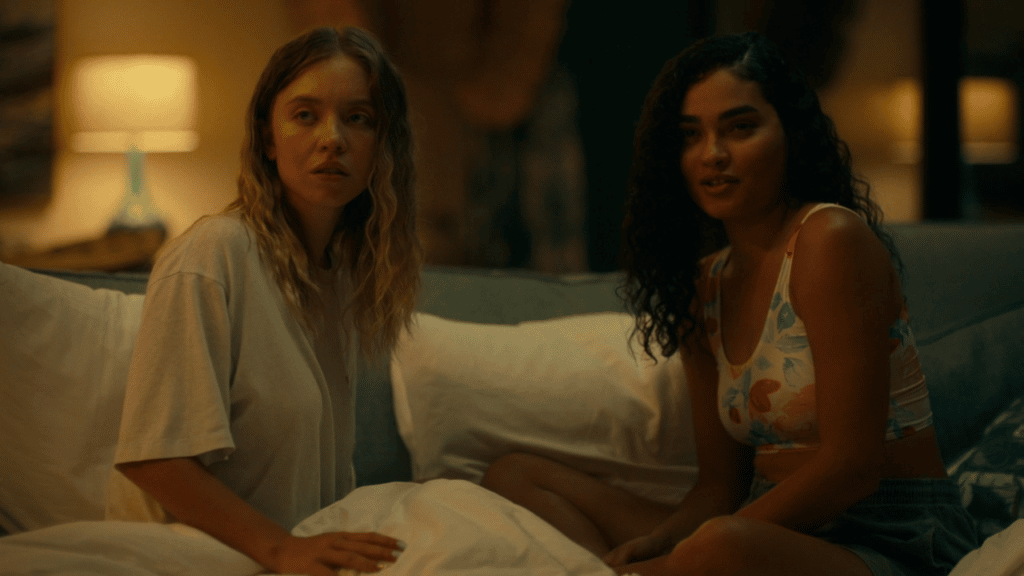
Mike White’s follow-up to his underrated HBO dramedy Enlightened is a show of two things. On a small scale, The White Lotus attempts to shed light on the dehumanization of hospitality workers in the hands of their guests. But on a bigger scale, the show is a smart satire of class divide and privilege. Though the story begins as a whodunnit, there are a lot of moving pieces throughout all seven episodes that the show will surprise you in every step of the way. It’s a hilarious and sharply-written dramedy with iconic turns from everyone in the ensemble. [Reyzando Nawara]
Read our review here.